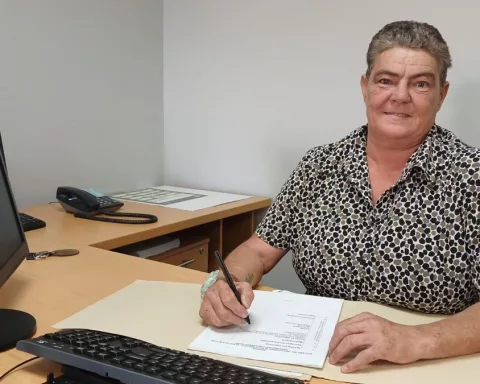The Big Issue, a publication in Cape Town, recovered from a scam that cost them R600,000 by undertaking cybersecurity training and implementing measures to prevent future scams. The magazine relies heavily on vendors who sell the magazine for R30 and receive half of the proceeds, which are used to fund skills development workshops. The Big Issue’s resilience serves as an inspiration and reminder of the importance of cybersecurity in today’s digital era.
How did The Big Issue recover from a scam and what is its importance?
The Big Issue, a renowned publication in Cape Town, fell victim to a scam, losing R600,000. However, they emerged stronger by undertaking cybersecurity training and putting stringent measures in place. The magazine heavily relies on vendors who sell the magazine for R30 and keep half the proceeds, allowing the funding of skills development workshops. The Big Issue stands as a symbol of resilience and underscores the importance of cybersecurity in today’s digital era. Its triumphant return serves as a beacon of hope and an inspiration for all who have encountered adversities.
Rising from the Ashes
In the dynamic city centre of Cape Town, a symbol of resilience and hope, The Big Issue, has valiantly risen from the ashes of adversity. This renowned publication, despite falling victim to a scam in June 2023, where it lost a whopping R600,000, has emerged stronger and more determined than ever. The malicious perpetrator, masquerading as the magazine’s printer, altered the bank details and made away with the substantial funds. Unfortunately, attempts by the financial institutions and law enforcement to retrieve the embezzled funds proved futile.
The magazine’s dynamic managing director, Derek Carelse, although deeply affected by the loss, decided to channel his energies into regrouping and rebuilding. With a steely resolve, he declared, ‘So that’s over. I’m not trying anymore.’ The incident served as a wake-up call, prompting the organization to engage in comprehensive training in preventing cybercrime and phishing. Consequently, they’ve put in place stringent measures to counteract future scams. Carelse urges other businesses to also take this seriously, emphasizing that anyone within an organization, regardless of their role, could potentially become a victim of such fraud.
The Role of the Vendors
Running on an annual budget of approximately R3.5 million, The Big Issue heavily relies on its dedicated vendors who distribute the magazine on the streets. The vendors sell each magazine for R30, keeping half the proceeds, allowing not only for the magazine’s continued operation but also for the funding of their invaluable skills development workshops.
One dedicated vendor is Mkhululi Magqabi, a resident of Driftsands, Khayelitsha, who, for the past eight years, has relied on selling The Big Issue as his primary source of income. He was unaware of the scam that threatened the magazine’s very existence. The potential closure of The Big Issue would have been devastating for vendors like Magqabi, whose livelihood depends on the magazine’s sales.
Magqabi’s workday spans ten hours, from 8 am to 6 pm, during which he sells the magazine to passers-by at traffic lights in Observatory. His sales fluctuate between four and ten magazines a day, but he supplements this income by selling hand-stitched trinkets, hats, and thermal cooking bags. These additional skills were developed through workshops organized by The Big Issue, signifying the magazine’s critical role in his life, beyond just providing an income source.
More than Just a Magazine
In many respects, The Big Issue transcends the boundaries of being merely a magazine. It serves as a crucial lifeline for individuals like Magqabi and stands as a symbol of resilience in the face of adversity. What’s more, it underscores the importance of cybersecurity in today’s digital era, reminding organizations of the constant need to reinforce their digital security measures.
Despite the many challenges it has faced, The Big Issue’s triumphant return is a testament to their unwavering strength and determination. Their story serves as a beacon of hope and an inspiration for all who have encountered or are currently experiencing adversities. Indeed, The Big Issue’s story is a powerful narrative, reminding us of the indomitable human spirit‘s ability to overcome hurdles and rise above even the most daunting of challenges.
1. What happened to The Big Issue in Cape Town?
The Big Issue in Cape Town fell victim to a scam in 2023, where they lost R600,000. The malicious perpetrator altered the bank details, thereby stealing the significant funds.
2. How did The Big Issue recover from the scam?
The Big Issue’s managing director, Derek Carelse, channeled his energies into regrouping and rebuilding after the scam. The organization then engaged in comprehensive training in preventing cybercrime and phishing and put in place stringent measures to counteract future scams.
3. What is the importance of The Big Issue?
The Big Issue stands as a symbol of resilience and underscores the importance of cybersecurity in today’s digital era. Its triumphant return serves as a beacon of hope and an inspiration for all who have encountered adversities.
4. Who are The Big Issue’s vendors?
The Big Issue heavily relies on its dedicated vendors who distribute the magazine on the streets. The vendors sell each magazine for R30, keeping half the proceeds, allowing not only for the magazine’s continued operation but also for the funding of their invaluable skills development workshops.
5. How does The Big Issue help its vendors?
The Big Issue provides vital income to its vendors, such as Mkhululi Magqabi, whose livelihood depends on the magazine’s sales. The magazine also offers skills development workshops to these vendors, allowing them to supplement their income with additional skills.
6. What does The Big Issue represent beyond being a magazine?
The Big Issue transcends the boundaries of being merely a magazine. It serves as a crucial lifeline for individuals like its vendors and stands as a symbol of resilience in the face of adversity. The magazine’s story reminds us of the indomitable human spirit’s ability to overcome hurdles and rise above even the most daunting of challenges.












